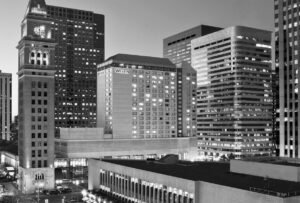Hard Money Loan Types
Hard Money Loan Types
Close in as little as 7 days.
Over 53 years of lending success.
Solutions for all situations.
 Montegra offers a wide range of commercial hard money loan solutions for Colorado real estate investors. Private capital loans are available for income-producing commercial and non-owner-occupied residential real estate. Montegra is able to underwrite loans in myriad situations in which banks and other institutional lenders are unable to approve them.
Montegra offers a wide range of commercial hard money loan solutions for Colorado real estate investors. Private capital loans are available for income-producing commercial and non-owner-occupied residential real estate. Montegra is able to underwrite loans in myriad situations in which banks and other institutional lenders are unable to approve them.
Loan Application
A loan used to purchase a specific real estate asset, such as an improved property or platted land.
Use: When traditional lenders cannot react in time, hard money acquisition loans offer borrowers funding options that can be closed within weeks rather than months. Additionally, Montegra can approve acquisition loans even when a property’s quality is not up to institutional standards and/or a borrower’s credit or liquidity does not meet traditional lenders’ requirements. Commercial, industrial, and investment-grade residential properties all qualify for this type of loan.
Insufficient Debt Service Coverage Loan
Insufficient Global Income Loan
Foreclosure Prevention Loan
Debtor in Possession (DIP) Loan
This loan provides an exit strategy for properties under chapter 11 bankruptcy. Similar to foreclosure prevention loans, DIP loans are used to get real estate out of the jurisdiction of bankruptcy court.
A loan designed for foreign nationals who are interested in purchasing real estate but are not able to secure funding from traditional U.S. banks because they do not have proof of either U.S. income or U.S. assets. Montegra’s foreign national loans can be used to purchase both commercial and non-owner-occupied residential investment properties in Colorado; these loans are offered to borrowers regardless of their green card status. These mortgages are very difficult to obtain from traditional lenders but are relatively easy to obtain from a private capital lender.
Standby Commitment Loan
This is a formal loan commitment from a private capital lender, such as Montegra, that specifies the terms under which the lender agrees to lend money to a borrower upon the completion of a project’s construction phase. These loans are frequently required by institutional lenders before they agree to do a construction loan and are also known as takeout loans.
A specialty of Montegra, this is a loan used to purchase a property or building with higher than normal vacancy rates, which also provides funds to renovate the property in order to increase its cash flow. When a property is generating below-market rents because of high vacancies or poor management, value-added loans can also be used to renovate and improve a property. This is useful when a property has potential to generate more income than it is currently producing. A value-added loan is a method to maximize cash flow and can also be referred to as helping to “stabilize” a property.
This loan is used to acquire raw or underdeveloped land. Banks and other institutional lenders will very rarely approve loans to purchase raw, undeveloped land because of the risk involved. However, Montegra is willing to approve loans to purchase or refinance land as long as the loan is for a first-position mortgage and the land has zoning, platting, entitlements, and infrastructure already in place. The almost total lack of financing for land purchases by banks and institutional lenders has created some of the best buying opportunities on commercial land in a generation. At the present time, few commercial or even private capital real estate lenders are willing to fund loans on land. Montegra is willing to fund loans on land in the metro Denver area that is zoned and has all its entitlements.
Banks are strongly opposed to lending against the equity in a property if the funds are going to be used for something other than improving that actual property. Because Montegra underwrites asset-based loans that are secured by the collateral property, it is possible for borrowers to “cash out” the equity in a property (regardless of whether it is vacant or developed) and put those proceeds toward another purpose besides the improvement of that property.
Profitability Trending Downward Loan
While banks must consider the financial circumstances of a borrower’s business when deciding whether or not to approve a commercial loan, Montegra can fund a conservative loan-to-value (LTV) ratio on commercial real estate (the property must also serve as collateral for the loan) even if the business making the purchase has decreasing profits or net income.
Non-Recourse Loan
Banks are typically averse to underwriting non-recourse loans as it means assuming more risk on their part as this type of loan only allows them to foreclose on the property in the event of a default, and does not allow them to seek additional money from the borrower if the proceeds from the foreclosure are less than what is owed on the loan. Montegra will consider non-recourse requests in certain situations on any loan within Montegra’s funding limit (from $250,000 to $4,000,000). The LTV ratio on non-recourse loans is typically limited to 50 to 60 percent.
Astute investors often find real bargains by purchasing Promissory Notes from banks at a significant discount. Montegra is willing to accept these notes as collateral. The formal name for this type of lending is called “hypothecation.” Typically, banks are unwilling to underwrite this type of loan.
The current contradictions between state laws and federal laws make it difficult for investors interested in renting to marijuana tenants to obtain financing. Montegra can underwrite hard money loans on such investment properties as long as the borrower is only a landlord, not a grower or dispensary.
